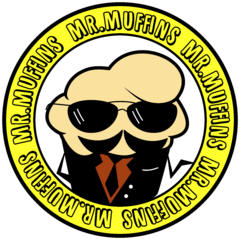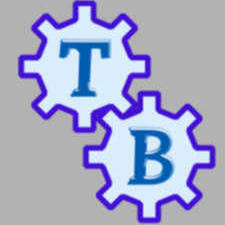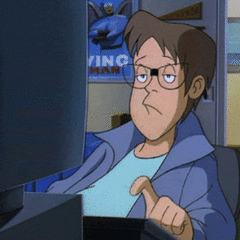-
Posts
137 -
Joined
-
Last visited
Reputation Activity
-
 captain_aggravated got a reaction from Mr.Muffins in Linux OS: How good is it compared to 5 years ago?
captain_aggravated got a reaction from Mr.Muffins in Linux OS: How good is it compared to 5 years ago?
I started using Linux Mint in 2014, with version 17. I'm now using 18.3, and when it's time to shift again I'll probably head to Manjaro.
I did briefly try Mint 19.1, and it just didn't work right for me. I don't know if I screwed something up or what, but lawd a lot of things didn't work right so I pulled back to 18.3.
I haven't really had many issues with system stability. I have seen Cinnamon occasionally restart, usually because I did something stupid. I've never actually crashed the OS, I've never seen a kernel panic.
There are a couple silly little issues. Sometimes my laptop will suspend when the lid is shut, then it'll wake itself back up four seconds later. A couple times I took the machine out of my bag after a long trip only to find it MIGHTY hot. If I'm going very far, I just shut it down now, it takes about 13 seconds to boot. I've seen much worse quirks out of WIndows machines.
Windows boxen tend to slow down as they age, and I haven't seen that out of a Linux system.
Stick with something fairly close to Ubuntu and go with whatever desktop environment you like. Since they're all built from Ubuntu, you'll find they have more similarities than differences, particularly in available software.
Speaking of available software, this forum post is brought to you by APT I personally haven't had much of a problem with gaming, though my tastes just happen to have aligned with the availability of Linux-ready titles. There are several rants here that I will omit, suffice it to say my beloved indie games like FTL: Faster Than Light, Kerbal Space Program, Antichamber and Undertale run perfectly in Linux in my experience. There are others on this forum who'll insist I'm insane...As an aside, have you ever seen a toddler addicted to those surprise egg videos on Youtube, and tried to take their tablet away, and they just SCREAM? Some of the folks here remind me of that when talking about gaming on Linux; they can't get Call of Halo, Assassin's Redemption 2: Revisionism running on their first try and oh they'll put even MY bitching to shame. If I were a betting man, I'd put money down that your experience would be somewhere in between my experience and theirs. I'll also note that due to the nature of Wine and DOSbox, it may be actually easier to run retro games on a Linux machine than modern Windows.
Watching movies is straightforward. Amazon Prime Video, Netflix etc. pretty much all work in Chrome. NOT Chromium, Chrome. You need the Google extensions, but it will install and run. VLC will also happily play DVD movies, assuming you're a Victorian luddite like me who still owns a functioning optical drive. By the way, use VLC. Doesn't matter what OS you run, VLC is excellent.
Graphic design on Linux is a total diaper fire. No Adobe products. Instead of Photoshop, you've got GIMP. GIMP, to its credit, is capable of accomplishing basically everything Photoshop can, but the UI is nigh incomprehensible. I use GIMP at work to prepare raster images for laser etching; for this I need the rescale, zealous crop, desaturate and remove alpha channel functions. Any time I try to get basically anything else done with it, I end up needing to get drunk. Inkscape is a little less stupid, it's your Illustrator replacement. I have actually gotten things done in Inkscape, but it always involves googling. In deference to wasab, I think Inkscape is at Version 0.92 right now. Doesn't help that I'm more of a CAD guy, and those silly artists seem to think that lines are supposed to have width. ? Krita is a straight-up drawing program. I'm not good at straight-up drawing, so I have no opinion, but I have actually seen some people who are good at straight-up drawing enjoy Krita. All three of the above packages are available on Windows, so maybe try them before you trap yourself with them. Note: My personal favorite image manipulation tool is a terminal utility called Imagemagick. Yes, I photoshop in the command line. It's too late for me, now.
That, we can HANDLE. All of your common desktop environments are going to be very customizable. gnome-look.org is a good place to start, the themes, icon packs, desktop wallpapers etc. all number in the hundreds or thousands. Google "ricing linux" if you feel like falling down a particularly deep rabbit hole.
-
 captain_aggravated got a reaction from bloodthirster in Recommendation on how to make the switch from Windows and game on Linux?
captain_aggravated got a reaction from bloodthirster in Recommendation on how to make the switch from Windows and game on Linux?
Okay, here are my recommendations on how to switch from Windows to Linux with a focus on gaming, without outright warning you off.
Go through your Steam library, look at the games that are most important to you, look at their store pages at where the Windows and Apple icons appear. If there's also a Steam logo there, it'll be Linux compatible. In my case, it just so happened that basically all of my games lined up with Linux availability. Climbing up onto a soapbox for a minute, many of the games that aren't available for Linux are made by the same developers that have major controversies surrounding lootboxes, predatory pricing schemes, or workers rights, the sort of studios that I don't want to support anyway, so it's no loss to me. *steps down off of soapbox* If you really are all about Ubisoft, EA and their ilk, you will be required to do some l33t hax0rzing, but with Valve's big push with things like SteamOS and Vulkan, it's coming right along. Start familiarizing yourself with Linux. Run it in a VM, install it on alternate hardware, get a Raspberry Pi, something. Do some of your "normal" daily tasks on a Linux machine, browse Reddit, edit Office documents, do what you do. Get used to the different file system, the UI. Do some stuff in the terminal. Get into the swing of owning and maintaining a Linux system. It is different. Take a good, critical look at your hardware and assess its Linux viability. The big sticking point these days is graphics drivers, particularly on laptops, and it's not usually the GPUs/drivers themselves, it's the donkey-fisting multiplexers. On laptops, you usually have one, maybe two outputs for video, they're physically attached to the CPU. There has to be some way of switching the outputs to the GPU or passing graphics back through the CPU and then to the IO. This is has been implemented 9 ways from Sunday depending on the brand and age of your GPU, and none of them are confidence inspiring. Switchable hybrid graphics is something I've wholly abandoned as "has never, and will never be worth it" like construction adhesives, politics, hydrogen fuel cells and marriage. A desktop system where the graphics card has it's very own outputs is where it's at, though I'll also note I'm astonished what Intel Integrated graphics can accomplish. sudo apt install steam. See how it works. There is a guy on Youtube, channel name DistroTube, who has posited that Linux gaming is on life support, and that life support is Steam. Few others want to support it, with one developer listing the hierarchy of revenue from most to least is Windows, Android, iOS, MacOS, interest from various bank accounts, and then Linux sales. There's a sort of Catch 22 with Linux systems here: No one uses Linux because there aren't many games and the graphics drivers suck, so devs don't develop games and drivers for Linux, etc. What I'm seeing is a LOT of people going "Hey, you know, Windows is doing things I really don't like, I'd really like to abandon it for another system, what about Linux?" And then getting warned off because it's not quite there yet. Well, the more Linux market share grows, the more incentive hardware manufacturers, software developers and game studios will have to support it. I won't represent Linux gaming as perfect or even just as good, but hell, give it a try anyway.
-
 captain_aggravated got a reaction from TechyBen in Linux or Windows on new SSD?
captain_aggravated got a reaction from TechyBen in Linux or Windows on new SSD?
There are certainly Linux distros that are a LOT lighter in terms of RAM and processor threads compared to Windows, but double check they'll run the software you want, and that you're willing to live with them. That's why I suggested trying some out.
-

-
 captain_aggravated got a reaction from KarathKasun in linux ls command
captain_aggravated got a reaction from KarathKasun in linux ls command
That is to say, it is case sensitive. ls d* searches for files that begin with a lowercase d, ls D* for files with an uppercase D.
ls | grep -i d* will ignore case.
-
 captain_aggravated got a reaction from 7850OC in best minimum size for a Linux partition ?
captain_aggravated got a reaction from 7850OC in best minimum size for a Linux partition ?
It really wasn't a simple question because of how many more questions it begs:
What distro? (Debian, Android, Manjaro, Puppy?) What hardware? (desktop, laptop, phone, embedded device, raspberry pi, toaster, space station, server? 32-bit or 64-bit?) What use case? (End user desktop, server, embedded device, VM, liveUSB, dual boot? No GUI, facebook and youtube, lots of big apps, huge numbers of files?) Which "linux partition?" (The whole OS, just root, just /home, just swap, any generic partition that can be mounted on a Linux system?) Partitioning a hard drive is a technical thing to do, so you need to provide some details on what you're trying to accomplish to get a straight answer.
Petabyte Project!
-
 captain_aggravated got a reaction from CodeNova in macOS vs linux
captain_aggravated got a reaction from CodeNova in macOS vs linux
That's not how copyright works. Let's say I wanted to be the guy who made Star Wars. Well I, like, totally can you guys! Here are my options:
Somehow attain a copy of the film, chuck it into Adobe Premiere and cut it the way I want to cut it, and start selling or giving away copies of the result. This is very illegal and will get me prosecuted. "But I changed the music that plays over the end credits, cut out that trash compactor scene and added that stormtropper gang bang during the climactic space battle. It's my own original work your honor!" is not a valid defense. Go have a meeting with Disney and sign a contract that grants me a license to edit and re-publish the film first. Disney very obviously would never sign such a contract in a frillion years, but the law does allow this to take place. Hold out for Disney to release the movie as open source. Disney could just say "A New Hope is a major part of pop culture, so we're just going to let the public have it for non-commercial purposes. Download it, edit it, host screenings of it, do whatever you want, you just can't profit monetarily." They won't, but they could. Wait until the copyright expires. Now, Disney is infamous for extending copyright laws such that I'm pretty sure they've already done irreparable damage to our culture, and now that Disney does own the rights to Star Wars, I imagine it will remain proprietary indefinitely. However, if our laws actually worked, there would come a date when the copyright would expire and the work would enter the public domain. Of course, the copyright term is the natural life of the creator plus seventy years. If George Lucas' head exploded right now, I'd be over a hundred years old when the copyright expires. Software works the same way, although programmers are more likely to release their code as open source. Open source =/= public domain, for example, Linux is very much copyrighted software.
TL;DR Unix has been rewritten from scratch several times because the law doesn't let you just change it a little bit and invlidate a copyright.
Well, for the purposes of answering what I think your ultimate question is, let's boil down the legal jargon to "MacOS is a closed source corporate product with restrictive licensing, GNU/Linux is an open source community project with permissive licensing" and "Apple bought a company that directly licensed a Unix kernel, Linux was written from scratch so the creators could own the property themselves."
That's not really what sets Linux and MacOS apart in practical terms, however. It's more important to talk about WHY the differences in the last paragraph exist.
Unix was originally developed by computer nerds who looked at a commercial operating system and said "Man, this would be great if it didn't suck. I can do this better than they did, watch." Unix was about being programmer-oriented from the VERY beginning. MacOS is a commercial product designed for normal people doing normal things in normal ways, because that's where the bulk of the profit is. Most Mac users don't care about (or likely understand) Unix certification, they like how it all "just works" and are willing to pay a premium for a shiny pretty thing they don't have to worry about configuring very much. Mac became Unix-like about halfway through it's long life by a strange string of coincidences. When's the last time you saw a commercial where in between the dancing with white earbuds and the spinning pencil styluses did you see some trendy young pretty person say "And it's POSIX-compliant!"
GNU/Linux, I think, is more of what Ken Thompson and Dennis Ritchie had in mind when they set out to redo Multics but properly this time. A Linux user will tell you "Apple just works...or it just doesn't." Linux is about getting weird stuff done. You want to make your own web-based gaming console? A super computer? An internet-connected coffee pot? Put sensors on a surfboard to measure ocean currents? Watch internet porn in 2019 on a Pentium III PC? Yeah, Apple won't help you, but one way or another you CAN get it done with Linux. At it's core, GNU/Linux is, and always has been, for people who want to make something out of it. The Unix Philosophy is much more central to that goal, which is why you'll hear Linux users arguing about it.
Maybe I've found a long-winded way of saying MacOS is a product, GNU/Linux is an ingredient?
-
 captain_aggravated got a reaction from CodeNova in macOS vs linux
captain_aggravated got a reaction from CodeNova in macOS vs linux
The exhaustively well documented Linux naming controversy aside, MacOS and Linux do currently bear resemblance to each other due to convergent evolution. They started off in very different places with opposite intentions and grew to resemble each other, partially through interbreeding. I know I tend toward long posts, but I promise I'll try to make this brief (and massively oversimplified)
GNU/Linux got its start in 1983 when Richard Stallman boldy proclaimed on Usenet that he was sick of signing NDAs and that he was going to make is own Unix-like operating system with blackjack and hookers, and he'd give it away to anyone who could make use of it. And to the magnificent bastard's credit, he almost pulled it off. The GNU project he started built the vast majority of a running operating system, including editors, compilers, shells, utilities, file systems, eventually even GUIs, some of which proved superior to their proprietary counterparts. There was just one thing missing: A kernel. GNU tried to make their own and abandoned it, looked at licensing some existing ones, turned back to making their own called Hurd. Work on Hurd was slow going, especially after a socially awkward Finnish student named Linus Torvalds turned up with a Unix-like kernel for IBM compatibles that was fit for purpose. Finally, in the early 1990's, Stallman's goal was realized: A free and open source Unix-like operating system that was indeed taken by the world and put to all kinds of fascinating uses. Of course, the name chosen for the kernel, Linux, proved more popular with users than GNU ever did since it was more pronounceable and sounded more like Unix and Minix etc. That has led to millions of arguments like the one above in this thread.
Either way around, building a Unix-like operating system was the whole point from the start, and by now GNU/Linux is the world's de facto standard Unix-like OS; it's been ported to virtually every architecture that exists and a few that don't and run on everything from crock pots to space ships.
MacOS meanwhile started out as yet another attempt by early-80's Apple to come up with a successor to the Apple II. The Apple III had flopped and the hugely expensive Lisa wasn't selling well. Some engineers had managed to squeeze enough power into their upcoming low-end budget computer to run similar graphical software to the Lisa in a much more affordable package. Steve Jobs pushed HARD for the system to be a proprietary, closed system unique to Apple, and basically got his wish. The Macintosh was the result. It might have been another smash hit for Apple, too...except IBM had started building the PC out of off-the-shelf hardware and a non-exclusively licensed operating system from Microsoft called DOS. This made the IBM/Microsoft PC possible to clone, which in turn led it to be THE de facto standard microcomputer architecture to this day.
Under increasing friction with the CEO and board of directors at Apple, Steve Jobs left to start his own computer company with blackjack and hookers. Where Apple had mostly succeeded in the home, primary education, small business and desktop publishing segments, Jobs' new company called NeXT Computer would target higher education, academia, science, R&D and industry. They built relatively powerful Motorola-based workstations running a Unix operating system (based on Mach and BSD, IIRC). The resulting NeXTSTEP operating system and it's NeXTCube workstations were technically impressive, introduced some interesting features like the dock, and gained some following in R&D, but weren't particularly successful commercially. Meanwhile, Apple was getting eaten alive by Microsoft powered PCs. Apple bought NeXT, basically to get Steve Jobs back. With a financial partnership with Microsoft, some deft marketing, and blending Apple and NeXT technology together, with many visual elements of MacOS combining with the Unix base and dock of NeXTSTEP. The ultimate result was OSX, now called MacOS. Jobs then set out to make Apple devices cool, hip and trendy, and built Apple into the most valuable company in history.
Long story short, GNU/Linux started out trying to be Unix-like, while MacOS got there sort of without meaning to. Along the way, they did intermingle and trade parts. For example, MacOS includes GNU's Bash shell as standard, and Linux uses Apple's CUPS printing service. Despite their similarities, they do have very different heritages, intentions and business models. Linux and Mac are very much not the same OS; their common ancestor is quite distant.
-
 captain_aggravated got a reaction from Lady Fitzgerald in macOS vs linux
captain_aggravated got a reaction from Lady Fitzgerald in macOS vs linux
The exhaustively well documented Linux naming controversy aside, MacOS and Linux do currently bear resemblance to each other due to convergent evolution. They started off in very different places with opposite intentions and grew to resemble each other, partially through interbreeding. I know I tend toward long posts, but I promise I'll try to make this brief (and massively oversimplified)
GNU/Linux got its start in 1983 when Richard Stallman boldy proclaimed on Usenet that he was sick of signing NDAs and that he was going to make is own Unix-like operating system with blackjack and hookers, and he'd give it away to anyone who could make use of it. And to the magnificent bastard's credit, he almost pulled it off. The GNU project he started built the vast majority of a running operating system, including editors, compilers, shells, utilities, file systems, eventually even GUIs, some of which proved superior to their proprietary counterparts. There was just one thing missing: A kernel. GNU tried to make their own and abandoned it, looked at licensing some existing ones, turned back to making their own called Hurd. Work on Hurd was slow going, especially after a socially awkward Finnish student named Linus Torvalds turned up with a Unix-like kernel for IBM compatibles that was fit for purpose. Finally, in the early 1990's, Stallman's goal was realized: A free and open source Unix-like operating system that was indeed taken by the world and put to all kinds of fascinating uses. Of course, the name chosen for the kernel, Linux, proved more popular with users than GNU ever did since it was more pronounceable and sounded more like Unix and Minix etc. That has led to millions of arguments like the one above in this thread.
Either way around, building a Unix-like operating system was the whole point from the start, and by now GNU/Linux is the world's de facto standard Unix-like OS; it's been ported to virtually every architecture that exists and a few that don't and run on everything from crock pots to space ships.
MacOS meanwhile started out as yet another attempt by early-80's Apple to come up with a successor to the Apple II. The Apple III had flopped and the hugely expensive Lisa wasn't selling well. Some engineers had managed to squeeze enough power into their upcoming low-end budget computer to run similar graphical software to the Lisa in a much more affordable package. Steve Jobs pushed HARD for the system to be a proprietary, closed system unique to Apple, and basically got his wish. The Macintosh was the result. It might have been another smash hit for Apple, too...except IBM had started building the PC out of off-the-shelf hardware and a non-exclusively licensed operating system from Microsoft called DOS. This made the IBM/Microsoft PC possible to clone, which in turn led it to be THE de facto standard microcomputer architecture to this day.
Under increasing friction with the CEO and board of directors at Apple, Steve Jobs left to start his own computer company with blackjack and hookers. Where Apple had mostly succeeded in the home, primary education, small business and desktop publishing segments, Jobs' new company called NeXT Computer would target higher education, academia, science, R&D and industry. They built relatively powerful Motorola-based workstations running a Unix operating system (based on Mach and BSD, IIRC). The resulting NeXTSTEP operating system and it's NeXTCube workstations were technically impressive, introduced some interesting features like the dock, and gained some following in R&D, but weren't particularly successful commercially. Meanwhile, Apple was getting eaten alive by Microsoft powered PCs. Apple bought NeXT, basically to get Steve Jobs back. With a financial partnership with Microsoft, some deft marketing, and blending Apple and NeXT technology together, with many visual elements of MacOS combining with the Unix base and dock of NeXTSTEP. The ultimate result was OSX, now called MacOS. Jobs then set out to make Apple devices cool, hip and trendy, and built Apple into the most valuable company in history.
Long story short, GNU/Linux started out trying to be Unix-like, while MacOS got there sort of without meaning to. Along the way, they did intermingle and trade parts. For example, MacOS includes GNU's Bash shell as standard, and Linux uses Apple's CUPS printing service. Despite their similarities, they do have very different heritages, intentions and business models. Linux and Mac are very much not the same OS; their common ancestor is quite distant.
-
 captain_aggravated got a reaction from r2724r16 in macOS vs linux
captain_aggravated got a reaction from r2724r16 in macOS vs linux
The exhaustively well documented Linux naming controversy aside, MacOS and Linux do currently bear resemblance to each other due to convergent evolution. They started off in very different places with opposite intentions and grew to resemble each other, partially through interbreeding. I know I tend toward long posts, but I promise I'll try to make this brief (and massively oversimplified)
GNU/Linux got its start in 1983 when Richard Stallman boldy proclaimed on Usenet that he was sick of signing NDAs and that he was going to make is own Unix-like operating system with blackjack and hookers, and he'd give it away to anyone who could make use of it. And to the magnificent bastard's credit, he almost pulled it off. The GNU project he started built the vast majority of a running operating system, including editors, compilers, shells, utilities, file systems, eventually even GUIs, some of which proved superior to their proprietary counterparts. There was just one thing missing: A kernel. GNU tried to make their own and abandoned it, looked at licensing some existing ones, turned back to making their own called Hurd. Work on Hurd was slow going, especially after a socially awkward Finnish student named Linus Torvalds turned up with a Unix-like kernel for IBM compatibles that was fit for purpose. Finally, in the early 1990's, Stallman's goal was realized: A free and open source Unix-like operating system that was indeed taken by the world and put to all kinds of fascinating uses. Of course, the name chosen for the kernel, Linux, proved more popular with users than GNU ever did since it was more pronounceable and sounded more like Unix and Minix etc. That has led to millions of arguments like the one above in this thread.
Either way around, building a Unix-like operating system was the whole point from the start, and by now GNU/Linux is the world's de facto standard Unix-like OS; it's been ported to virtually every architecture that exists and a few that don't and run on everything from crock pots to space ships.
MacOS meanwhile started out as yet another attempt by early-80's Apple to come up with a successor to the Apple II. The Apple III had flopped and the hugely expensive Lisa wasn't selling well. Some engineers had managed to squeeze enough power into their upcoming low-end budget computer to run similar graphical software to the Lisa in a much more affordable package. Steve Jobs pushed HARD for the system to be a proprietary, closed system unique to Apple, and basically got his wish. The Macintosh was the result. It might have been another smash hit for Apple, too...except IBM had started building the PC out of off-the-shelf hardware and a non-exclusively licensed operating system from Microsoft called DOS. This made the IBM/Microsoft PC possible to clone, which in turn led it to be THE de facto standard microcomputer architecture to this day.
Under increasing friction with the CEO and board of directors at Apple, Steve Jobs left to start his own computer company with blackjack and hookers. Where Apple had mostly succeeded in the home, primary education, small business and desktop publishing segments, Jobs' new company called NeXT Computer would target higher education, academia, science, R&D and industry. They built relatively powerful Motorola-based workstations running a Unix operating system (based on Mach and BSD, IIRC). The resulting NeXTSTEP operating system and it's NeXTCube workstations were technically impressive, introduced some interesting features like the dock, and gained some following in R&D, but weren't particularly successful commercially. Meanwhile, Apple was getting eaten alive by Microsoft powered PCs. Apple bought NeXT, basically to get Steve Jobs back. With a financial partnership with Microsoft, some deft marketing, and blending Apple and NeXT technology together, with many visual elements of MacOS combining with the Unix base and dock of NeXTSTEP. The ultimate result was OSX, now called MacOS. Jobs then set out to make Apple devices cool, hip and trendy, and built Apple into the most valuable company in history.
Long story short, GNU/Linux started out trying to be Unix-like, while MacOS got there sort of without meaning to. Along the way, they did intermingle and trade parts. For example, MacOS includes GNU's Bash shell as standard, and Linux uses Apple's CUPS printing service. Despite their similarities, they do have very different heritages, intentions and business models. Linux and Mac are very much not the same OS; their common ancestor is quite distant.
-
 captain_aggravated got a reaction from TopHatProductions115 in Video request: quit amazon
captain_aggravated got a reaction from TopHatProductions115 in Video request: quit amazon
1. Other viable search engines do exist; fortunately those websites that do use embedded Google search are usually clearly marked.
2. I'll grant you, this is the ONE functionally irreplaceable service. Twitch, Vimeo, Dailymotion and pornhub put together are tiny next to Youtube. And it's not for lack of trying on Google's part, they've been trying VERY hard to kill Youtube these last few years, just no one seems capable of stepping up.
3. iOS. It has a much smaller market share than Android, but it is mainstream enough to be a viable alternative.
4. Surprised you didn't mention 8.8.8.8
The thing with Google is, they smack their multicolored badge on everything they touch. You don't necessarily know when you visit a website or run a service where they get their web hosting. I've seen folks try to go without the big five, and they usually find Amazon to truly be the difficult one to ditch. Getting rid of all five simultaneously, particularly Amazon and Google, is a mighty challenge, though Amazon is sneakier.
-
 captain_aggravated got a reaction from TopHatProductions115 in Video request: quit amazon
captain_aggravated got a reaction from TopHatProductions115 in Video request: quit amazon
Cool. Prove me wrong.
-
 captain_aggravated got a reaction from TopHatProductions115 in Video request: quit amazon
captain_aggravated got a reaction from TopHatProductions115 in Video request: quit amazon
I think you guys are missing the point. It's not just Amazon's retail catalog, Audible, Prime Video, Alexa etc. It's Amazon Web Services. Things you don't even think of like Netflix, Signal, DuckDuckGo, are hosted on AWS. De-Amazoning your life is probably harder than De-Googling.
-
 captain_aggravated got a reaction from CodeNova in Ransomware protection
captain_aggravated got a reaction from CodeNova in Ransomware protection
Alleged ties to the Russian government, etc. DHS ousted their software from the US Federal government awhile back for alleged spying efforts. I have no reliable method to determine if those allegations are true or if it's just some limp-dingus chickenhawk in Washington posturing for any one of a trillion reasons. And that's sort of the crux of it, I don't have a basis for trust in either direction, so I'm out.
-
 captain_aggravated reacted to Willpiam in Amazon Echo vs. Google Home
captain_aggravated reacted to Willpiam in Amazon Echo vs. Google Home
My house is full of echos. If you want to hear my thoughts on the matter I think out loud so it shouldn't be to hard.
-
 captain_aggravated got a reaction from 4me in Social media & Internet in general.
captain_aggravated got a reaction from 4me in Social media & Internet in general.
I 100% believe this person. That's how someone who stopped using the internet pre-2006 would type. I'm reminded of AIM circa 2002, as used by tweens.
-
 captain_aggravated got a reaction from FuzzyYellow in A Mac as a work machine?
captain_aggravated got a reaction from FuzzyYellow in A Mac as a work machine?
The biggest thing I have against MacOS is their license.
For awhile there, I really respected Apple hardware. For most of a decade, you got a machine that was a very standardized, curated subset of the "Intel PC." Their electrical and mechanical parts were interchangeable, so you could upgrade RAM, replace hard drives, fix broken keyboards, etc. You could make one working Macbook out of two non-working Macbooks.
That seems to have changed.
Apple's business practices are questionable at best, particularly the kinds of businesses they contract with for manufacture, warranty service, and some app development. Not everyone at Apple works in that big UFO they built. The more I look at them, the more they remind me of Ben Stiller in Happy Gilmore.
-
 captain_aggravated got a reaction from Lurick in Is UPS still required for modern gaming PCs?
captain_aggravated got a reaction from Lurick in Is UPS still required for modern gaming PCs?
For a home machine it's not about total annual downtime, it's about the total number of times the grid fails hard enough to hard reset the machine. Here in North Carolina, that's once every two weeks or so, more during storm seasons. I wouldn't want my machine being involuntarily power cycled that often, so I'd put it on a UPS.
-
 captain_aggravated got a reaction from ScratchCat in Linux No0b - should I switch? Why?
captain_aggravated got a reaction from ScratchCat in Linux No0b - should I switch? Why?
Neither of which are Linux-based. They are Unix-like, but they are not Linux.
First thing I'll mention is what you are not missing: Applications. Linux manages to have a negative number of killer apps. I know of basically no one who says "I switched to Linux because it has ___." Because of the nature of open source, just about anything that runs in Linux can be run in Windows as well, but not the other way around. Switching to Linux means giving up Adobe, Autodesk, a half dozen game studios, and yes indeed, MS Office. For a lot of these, there are open source alternatives...which are usually in perpetually low version numbers not ready for actual use for anything. It's very common to hear people say they avoid using Linux because their favorite game or app doesn't work.
There are a couple things I was missing by using Windows:
Variety. Windows pretty much looks one way. Sure, you can change the wall paper and maybe a few colors here and there, but it looks like one thing. The Linux ecosystem has about a dozen desktop environments to choose from: Gnome, KDE, xfce, lxde, Unity, Cinnamon, Mate, whatever Elementary calls their DE, and a few others. Not to mention things that might be alien to those who grew up with Windows, like tiling window managers such as Awesome. You can pick a Linux system that is right for you. Power. I'm not really talking about system performance, though if you have an old computer that's running very sluggish in Windows 7 or 10, you can probably restore it to usability with a lightweight streamlined Linux distro that takes up less system resources. I'm talking about the user effort to accomplishment ratio. Windows and MacOS are very manual systems to use, and they make people think about using their computers in manual ways. Linux more readily exposes the user to the terminal, which allows you to quickly automate repetitive tasks in ways that GUIs aren't really able to do. Or to automate processes via piping. Ownership. I decide when and if I update my computer, when it turns on, and when it turns off. There is no corporation that makes those decisions for me, and I'm never told I'm not allowed to use my computer for certain reasons or in certain ways. Fun. Linux is actually allowed to be fun. There's a package built into a lot of Linux distros called fortune. It's a fortune cookie generator, type "fortune" and it spits out a silly phrase. Mine just said "Help stamp out Mickey-Mouse computer interfaces -- Menus are for Restaurants!" There's another one called cowsay. Type "cowsay phrase" and it will display a little ascii art cow with a speech balloon with "phrase" in it. There's yet another one called lolcat, which will print whatever is typed into it in rainbow colors in the terminal. I mentioned piping earlier--well, you can pipe them together by typing "fortune | cowsay | lolcat" and it will print an ascii art cow saying a random silly phrase in rainbow colors. That's the kind of silliness you won't find in Windows. -
 captain_aggravated got a reaction from Fasauceome in Anyone else seeing this ?!?!
captain_aggravated got a reaction from Fasauceome in Anyone else seeing this ?!?!
If Google turned in the Youtube copyright algorithm as homework, I'd put down my red pen, pick up my red sharpie, give them a big, fat, bold zero that bleeds through the top two or three pages. It is an utter failure for which they should have to repeat the semester.
It throws an unacceptable number of false positives, claiming unrelated content for being even vaguely similar. Hey guess what? No one owns the copyright on *saying things about computers.* I'm surprised it hasn't flagged every video that features a guy standing in front of some shelves.
It makes claims on others behalf without their permission, and says so. "You've been flagged as using content owned by Linus Media Group." Well I didn't, so have they decided to attack me? No, a server somewhere running code no one wrote attacked you for them. Now say thank you.
It fails to recognize actual blatant copyright theft, being completely fooled by minor changes in video speed, a gradient filter or audio pitch. Youtube is full of pirated movies and TV shows that are thus distorted.
It flags content in the public domain. Scott Manley was flagged for using NASA footage. AvE was flagged for a USAF performance of Gustav Holst's Jupiter. Both of these are government works and thus in the public domain. The problem is, these works have ever been used by anyone else in a copyrighted work. According to Youtube, it is illegal to be the second guy to re-publish a public domain work.
It does not respect fair use. Journalists and critics constantly have their videos discussing and critiquing works flagged, despite being obviously within fair use.
It does not respect licensed use. Collaboration videos get flagged when simultaneously posted on both channels that worked on it, or when one youtuber guest stars on another's channel.
It has no mechanism to determine relationships. If TechQuickie is getting flagged for using LinusTechTips content, that means that it has no functioning way of deciding "Yeah, that's the same corporate entity posting it's own intellectual property in two different places, that's legit. Carry on."
EDIT: Oh, I forgot, it operates on a guilty until proven innocent basis. Because of course it does.
I won't even count how easy and encouraged it is to weaponize the copyright claim system, wherein it gets used not as a tool to protect profits from intellectual property, but to silence discussion or just hurt someone you don't like, as that is outside the automatic "no one can ever know how it works, it just "does"" section.
I think we're going to have to have a parent-teacher-principal conference about this child's performance on this assignment.
-
 captain_aggravated got a reaction from Blademaster91 in Anyone else seeing this ?!?!
captain_aggravated got a reaction from Blademaster91 in Anyone else seeing this ?!?!
If Google turned in the Youtube copyright algorithm as homework, I'd put down my red pen, pick up my red sharpie, give them a big, fat, bold zero that bleeds through the top two or three pages. It is an utter failure for which they should have to repeat the semester.
It throws an unacceptable number of false positives, claiming unrelated content for being even vaguely similar. Hey guess what? No one owns the copyright on *saying things about computers.* I'm surprised it hasn't flagged every video that features a guy standing in front of some shelves.
It makes claims on others behalf without their permission, and says so. "You've been flagged as using content owned by Linus Media Group." Well I didn't, so have they decided to attack me? No, a server somewhere running code no one wrote attacked you for them. Now say thank you.
It fails to recognize actual blatant copyright theft, being completely fooled by minor changes in video speed, a gradient filter or audio pitch. Youtube is full of pirated movies and TV shows that are thus distorted.
It flags content in the public domain. Scott Manley was flagged for using NASA footage. AvE was flagged for a USAF performance of Gustav Holst's Jupiter. Both of these are government works and thus in the public domain. The problem is, these works have ever been used by anyone else in a copyrighted work. According to Youtube, it is illegal to be the second guy to re-publish a public domain work.
It does not respect fair use. Journalists and critics constantly have their videos discussing and critiquing works flagged, despite being obviously within fair use.
It does not respect licensed use. Collaboration videos get flagged when simultaneously posted on both channels that worked on it, or when one youtuber guest stars on another's channel.
It has no mechanism to determine relationships. If TechQuickie is getting flagged for using LinusTechTips content, that means that it has no functioning way of deciding "Yeah, that's the same corporate entity posting it's own intellectual property in two different places, that's legit. Carry on."
EDIT: Oh, I forgot, it operates on a guilty until proven innocent basis. Because of course it does.
I won't even count how easy and encouraged it is to weaponize the copyright claim system, wherein it gets used not as a tool to protect profits from intellectual property, but to silence discussion or just hurt someone you don't like, as that is outside the automatic "no one can ever know how it works, it just "does"" section.
I think we're going to have to have a parent-teacher-principal conference about this child's performance on this assignment.
-
 captain_aggravated got a reaction from thinwalrus in Anyone else seeing this ?!?!
captain_aggravated got a reaction from thinwalrus in Anyone else seeing this ?!?!
If Google turned in the Youtube copyright algorithm as homework, I'd put down my red pen, pick up my red sharpie, give them a big, fat, bold zero that bleeds through the top two or three pages. It is an utter failure for which they should have to repeat the semester.
It throws an unacceptable number of false positives, claiming unrelated content for being even vaguely similar. Hey guess what? No one owns the copyright on *saying things about computers.* I'm surprised it hasn't flagged every video that features a guy standing in front of some shelves.
It makes claims on others behalf without their permission, and says so. "You've been flagged as using content owned by Linus Media Group." Well I didn't, so have they decided to attack me? No, a server somewhere running code no one wrote attacked you for them. Now say thank you.
It fails to recognize actual blatant copyright theft, being completely fooled by minor changes in video speed, a gradient filter or audio pitch. Youtube is full of pirated movies and TV shows that are thus distorted.
It flags content in the public domain. Scott Manley was flagged for using NASA footage. AvE was flagged for a USAF performance of Gustav Holst's Jupiter. Both of these are government works and thus in the public domain. The problem is, these works have ever been used by anyone else in a copyrighted work. According to Youtube, it is illegal to be the second guy to re-publish a public domain work.
It does not respect fair use. Journalists and critics constantly have their videos discussing and critiquing works flagged, despite being obviously within fair use.
It does not respect licensed use. Collaboration videos get flagged when simultaneously posted on both channels that worked on it, or when one youtuber guest stars on another's channel.
It has no mechanism to determine relationships. If TechQuickie is getting flagged for using LinusTechTips content, that means that it has no functioning way of deciding "Yeah, that's the same corporate entity posting it's own intellectual property in two different places, that's legit. Carry on."
EDIT: Oh, I forgot, it operates on a guilty until proven innocent basis. Because of course it does.
I won't even count how easy and encouraged it is to weaponize the copyright claim system, wherein it gets used not as a tool to protect profits from intellectual property, but to silence discussion or just hurt someone you don't like, as that is outside the automatic "no one can ever know how it works, it just "does"" section.
I think we're going to have to have a parent-teacher-principal conference about this child's performance on this assignment.
-
 captain_aggravated got a reaction from Blitz4 in Windows 10
captain_aggravated got a reaction from Blitz4 in Windows 10
Oh, that.
LTT does a lot of hardware testing, which involves mixing and matching a lot of motherboards, CPUs, memory, graphics cards etc. Windows' DRM assigns itself to a given hardware configuration, so if you do a lot of that hardware swapping, it'll invalidate the Windows license you're using, and as time goes on this has been getting to be more and more of a pain in the neck. So for LTT's test bench rigs (not their production machines), it's just more practical to run Windows non-activated in their somewhat unique use case. That video exists to explain something viewers noticed in some of their videos, rather than to advise viewers. For the typical Windows user who is going to buy/build a machine and then leave it pretty much alone hardware wise, there is no benefit to not activating Windows.
-

-
 captain_aggravated got a reaction from rocketbagel in Buying an arduino
captain_aggravated got a reaction from rocketbagel in Buying an arduino
Here's how Arduino works: They released the schematics for their boards as open source hardware, inviting just anyone to make identical products. They do maintain and (try to) enforce the trademark on the words "Arduino" and "Genuino" along with the "Infinity, more or less" logo and probably their distinctive shade of teal. Paraphrasing their words: If you can make our hardware cheaper and thus available to more people, great! But, buying a brand name board from us does benefit the people who designed the boards and wrote the software, so we do want it to be easy to tell which boards actually come from us.
It seems that the concept of open source hardware was lost on the Chinese, who proceeded to flood the market with lower quality knockoff boards complete with trademark infringing markings out of sheer force of habit, often at very low prices. A genuine Uno might cost upwards of $25, while a knockoff board might run you $3.
The ones marked "Arduino compatible" with blue--not teal--boards that don't say "Arduino" anywhere physically on them are from the guys who are trying to play by the rules, as are the ones that are any color under the sun (Sparkfun, for example, makes bright red Arduino compatibles. Adafruit is a special case, they manufacture genuine Arduino products under license). Try to avoid the ones that illegally bear the Arduino trademark. You can tell them apart from the genuine boards pretty easily by price.














.thumb.jpg.24da69eef964f5222d77b6d665da8858.jpg)



